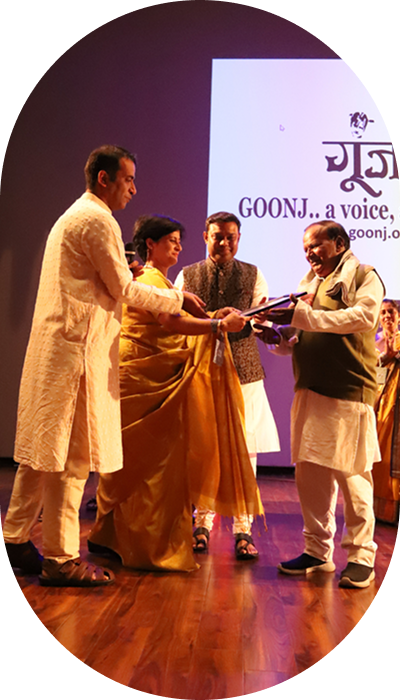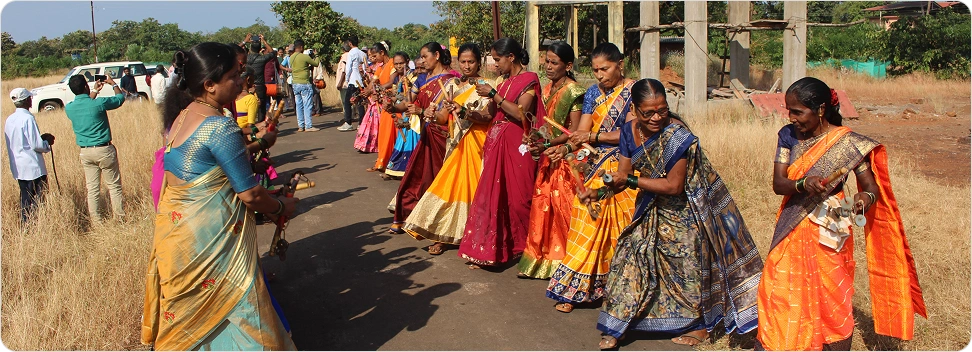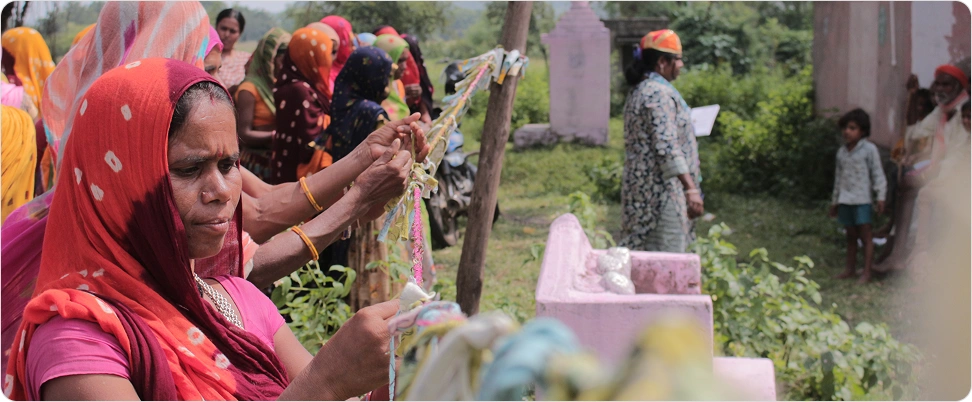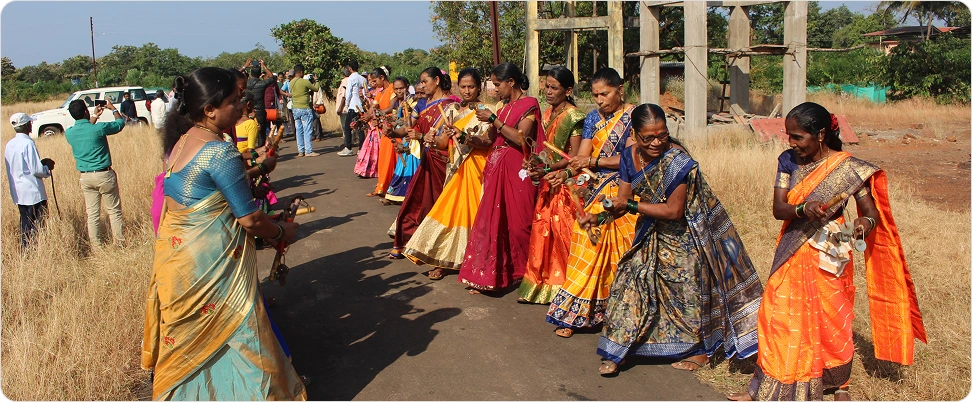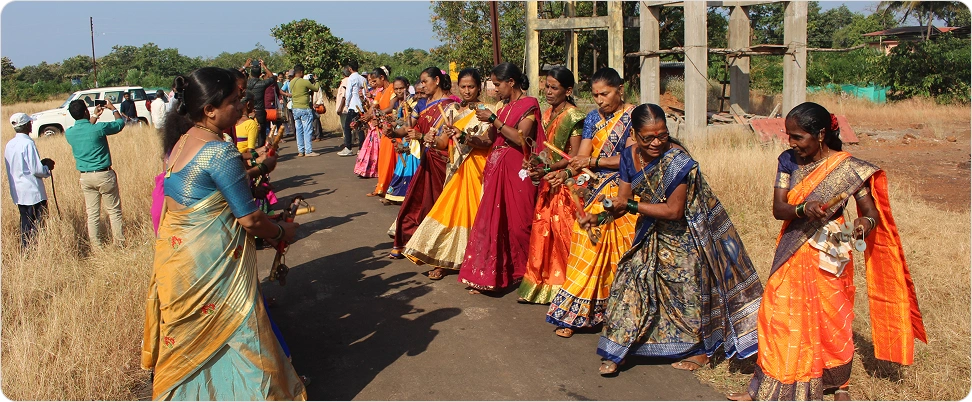Anshu Gupta – Of Restless Questions and Relentless Action
Social entrepreneur. Founder of Goonj and Gram Swabhimaan.
Known for reimagining disaster relief and response, dignity-led giving, and community-driven development in India.
The Backstory: Born of Refusal and Resolve
“I was told I’d never walk again. I didn’t believe it.”
A Childhood of Quiet Grit
Anshu grew up in a middle-class household where dignity wasn’t spoken of, it was lived. Small things, like hiding the smoke from the chulha before guests arrived, reflected a deep sense of pride. His family didn’t have much, but they carried themselves with quiet strength.
The First Act of Rebellion: Hope
“The first initiative I took was against a diagnosis.”
After a serious accident, doctors told him he’d never walk again. But Anshu rejected the diagnosis. He created a makeshift brace from socks and used a hockey stick to walk and went to write his board exams. This wasn’t just about walking; it was about choosing hope over helplessness.
Lessons Etched in Small Acts
His father never gave long lectures, he just lived with quiet honesty. Returning even a rupee by mistake, showing accountability in small things, these were lessons that stuck.
In school, Anshu tried leading in student parliament, in debates. He failed often, but each setback helped him build something deeper: resolve.
From Question to Cause
This segment walks through the pivotal questions that shaped Goonj:
Why do we normalise litter outside our homes?
Why is cloth not part of development conversations?
What does dignity look like when you have very little?
He began to walk into the cracks of India’s urban-rural divide not as a savior, but as a seeker.
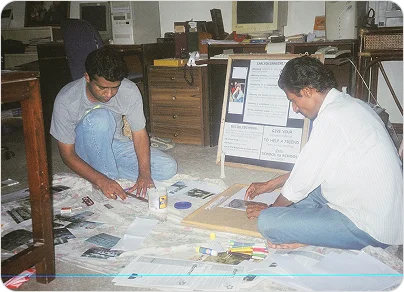
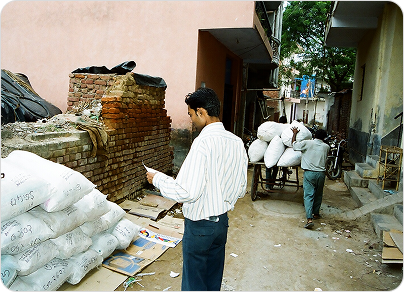
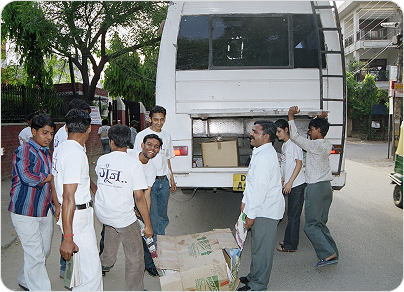
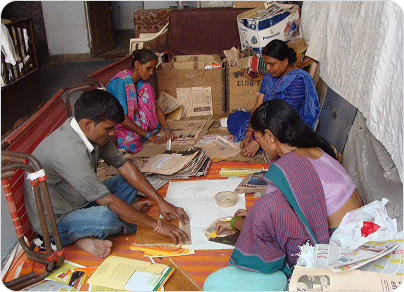
“People questioned everything my clothes, my motives, my friends. I questioned myself too. But I didn’t stop.”
Building Goonj: The Fabric of Dignity
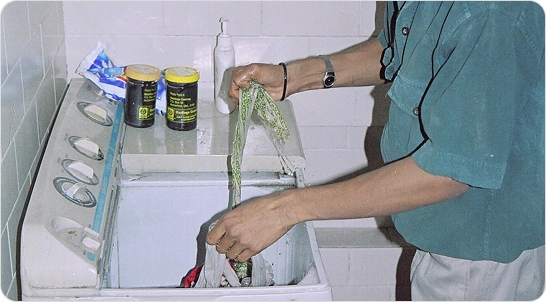
Washing heaps of contributed clothes with Meenakshi Gupta, Co Founder, Goonj
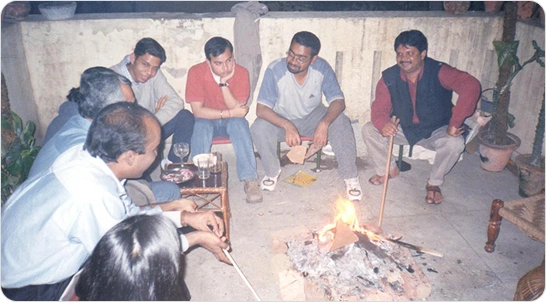
Selling their double bed to rent the first storeroom
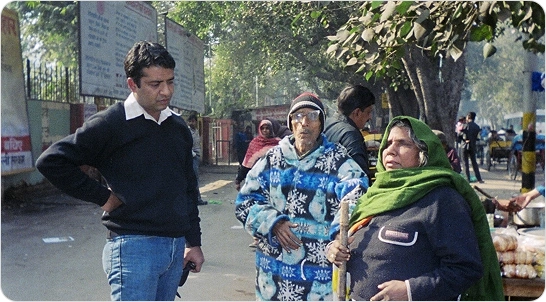
A man wearing a contributed coat on Eid and calling it “his best gift in years
“Cloth is not relief. It’s a person’s self-worth stitched into something they can use with pride.”
The Philosophy of Taking Initiative
“Taking an initiative begins with believing you’re not just an individual.”
Opposition
Friends doubt you, even loved ones push you toward stability
Silence
People begin watching, some even join in
Ownership
When people replicate what you started
Media & Public Presence
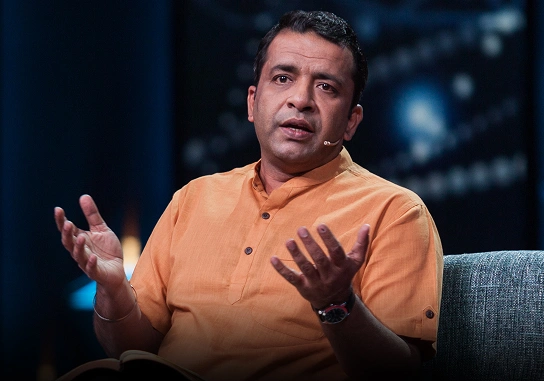
How a Piece of Cloth Can Restore Human Dignity
Nov 2019
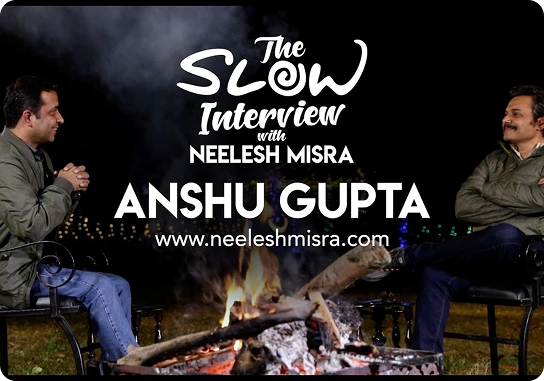
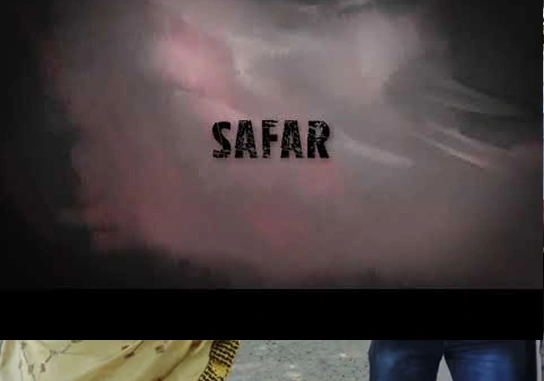
Safar
Sep 2020
Reflections from the Road
“Helping people is the only work that doesn’t ask for a degree or a designation.”
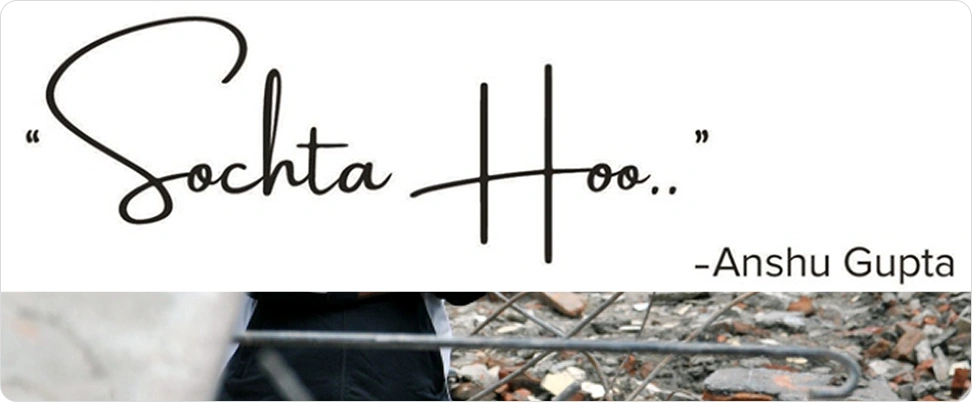
Sochta Hoo
“The first initiative I took was against a diagnosis.”
Read More
Taking an Initiative – Keynote by Anshu Gupta
Event: Asia Pacific Philanthropy Consortium (APPC), Phuket, Thailand
Date: November 28–30, 2005
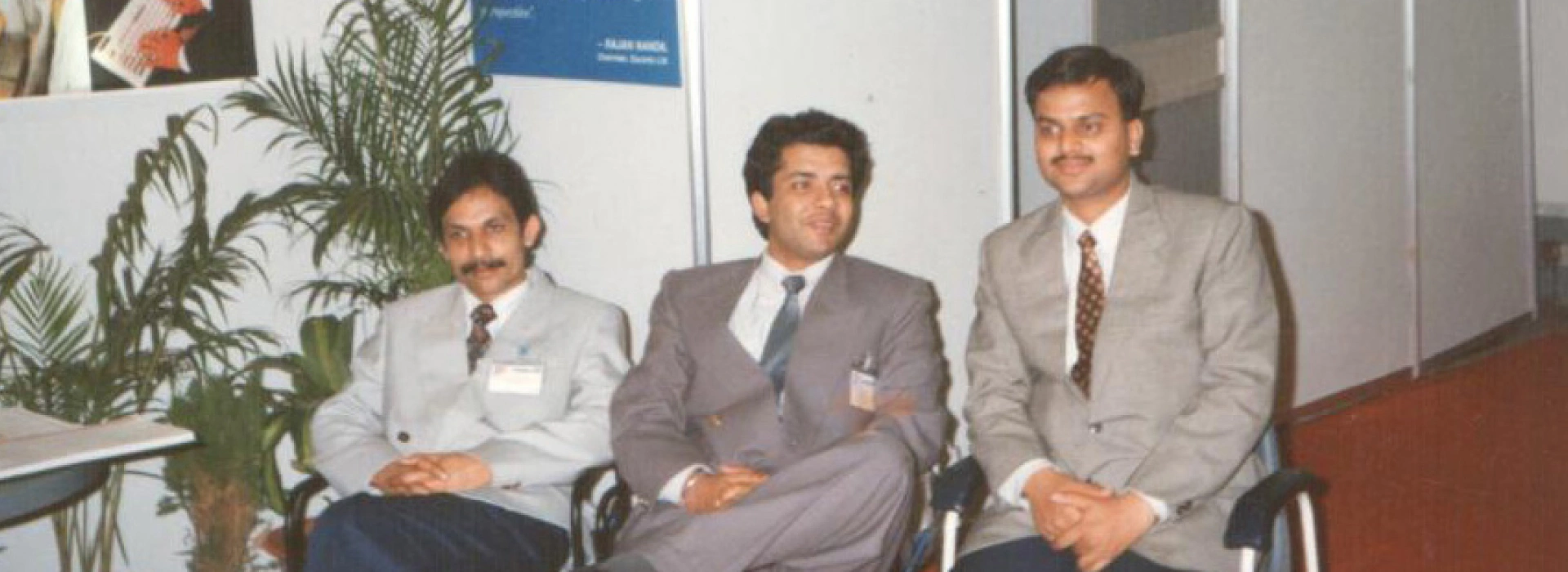
A Personal Beginning
This is not a speech from a seasoned public figure. It is a reflection from someone who has walked, quite literally, against odds. Anshu Gupta begins his keynote with the story of a childhood accident that nearly rendered him immobile. The doctors said he would never walk again. He refused to accept that. With socks stuffed with cotton, tied with string, and a hockey stick for balance, he taught himself to walk. That was his first act of resistance. His first initiative.
“I Was Told I Would Never Walk Again”
Anshu reflects on growing up in a middle-class family. He shares memories of hiding smoke from the chulha to preserve the illusion of using gas, of his father quietly paying extra to a maid for breaking a cup without making a scene.
“We never heard the word ‘poverty’ in our home, even when money was tight.”
This wasn’t about lack. It was about values. Dignity. Ethics. And unspoken generosity.
“Clothes Are Not Relief — They Are Dignity”
Anshu recounts his school days: trying to run for elections, losing, facing taunts, and eventually stepping away. He calls out the fear of visibility, of speaking, of being questioned. He failed in maths. He feared microphones. These were real things.
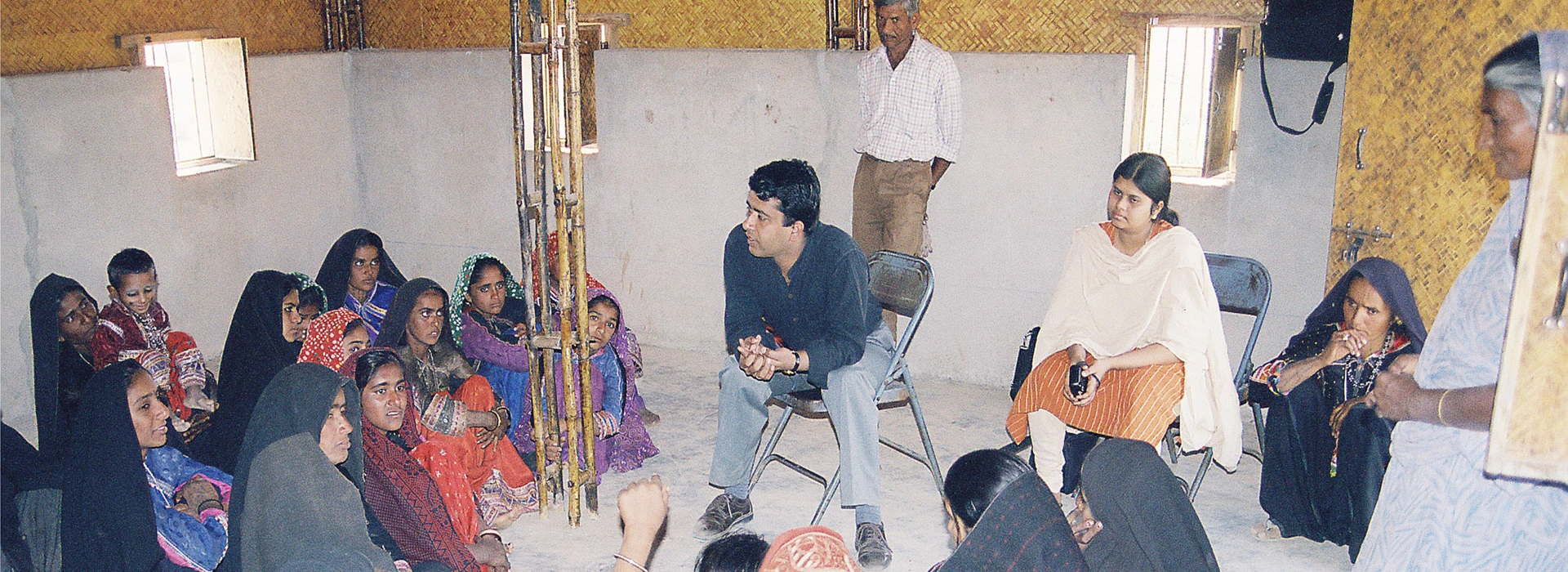
But the turning point came not with a big achievement, but with a quiet return to purpose.
From 67 clothes in a rented space to a nationwide movement, Anshu shares the emotional and logistical chaos of starting Goonj. He sold his double bed to buy shelves. He washed donated clothes in his bathroom. He faced criticism for the kind of people who joined him.
“They asked, why are your volunteers dressed like this? Why don’t they look ‘educated’?”
He answered with action. One coat became Eid for a man who had lost everything. That, to Anshu, was development.
“What We Learn from Resistance”
He speaks of how development must be about listening, not giving. How dignity is design. And how silence is not absence – it’s potential.
“The world talks about impact. But impact doesn’t begin with funding. It begins with respect.”
He challenges the audience to reflect on the voices they do not hear – the informal workers, the labouring hands, the silent changemakers.
“You Are Not Just an Individual”
"Taking an initiative is never about scale. It is about truth. About not waiting for others to start."
Anshu ends by inviting the listener to begin not big, but honest. To commit, even if they walk alone at first. Because, as he learned when he rejected his crutches, the human spirit can balance even on the weakest leg – if it believes in moving forward.
Close with warmth.
“You don’t need to be in an NGO to make change. Just start with one thread. The net will hold.”
